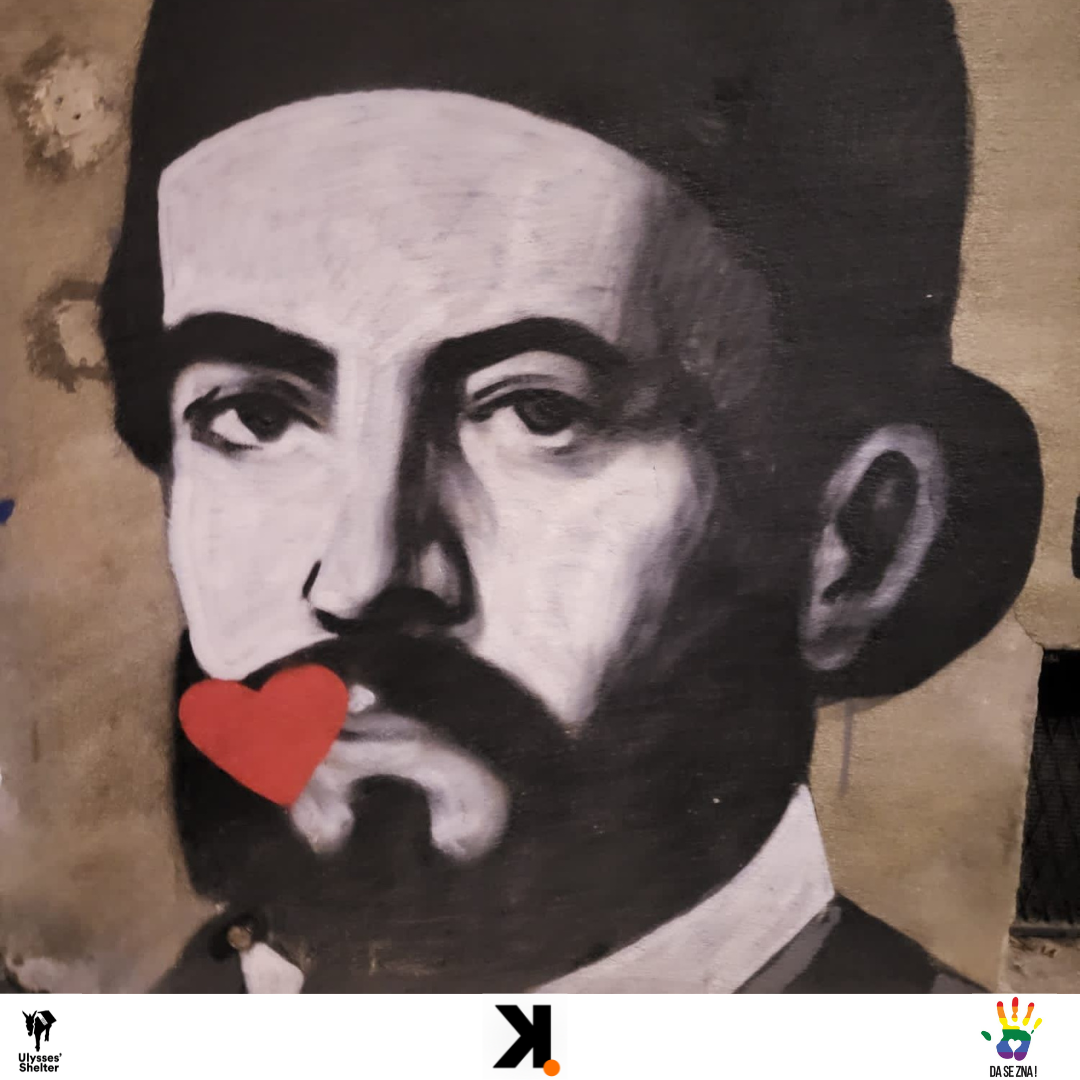
26 Sep Can traditional poems be queer?
On Thursday, September 14, in the KROKODIL Center, we held a conversation and a poetry performance titled “Can traditional poems be queer?” during which we discussed the reinterpretation and reimagining of traditional lyrical and epic poetry in a queer key, LGBTIQ+ activism in Greece today, analyzed and compared the situation there with the one in Serbia, but also through a poetic performance presented the work of Marios Chatziprokopiou, who was KROKODIL’s Writer-in-residence during the month of September thanks to the Ulysses’ Shelter project. Marios in his poems explores issues of queer mourning and desire in relation to folk poetic traditions.
Marios Chatziprokopiou is an emerging poet, translator, performer, and researcher born in Thessaloniki (1981), and based in Athens, Greece. His first poetry book Local Tropics (Τοπικοί Τροπικοί, Antipodes 2019) investigates issues of queer mourning and desire in relation to folk poetic traditions. Ιt has been shortlisted for the State Poetry Prize, as well as for the Yannis Varveris Prize of the Hellenic Authors’ Society. His poems have been translated into English and French, and they have been included in several literary magazines and edited volumes. Stemming from language, his practice is expanded to the voice, the body, and the public space, in the intersections between fiction and reality, art and science. He has performed in several cultural and academic institutions internationally, mainly in Germany, the UK, Brazil, Greece, Cyprus, and Serbia/Belgrade. As a researcher, he has published on performances of migration and refugeeness, performances of gender and sexuality, ritual performances of lament, contemporary re-readings of ancient drama, auto-ethnography, oral histories of early performance art, and the relationships between poetry, ethnography, and performance.
Matija Stefanović. Born in 1997, graduated from Valjevo Gymnasium, and is currently studying Serbian Literature and Language at the Faculty of Philology in Belgrade. Matija got into activism by accident and, without the intention of staying for long, started working at the Pride Info Center, but stayed for almost a year anyways, after which, in November 2021, he became a member of the Da se zna! team, where he is now in a position of Psychological Support Coordinator. Matija is a transgender man and on his YouTube channel (Horrible Steff) he documents his transition and talks about being transgender and his experiences with gender. He makes origami, loves Lord of the Rings and Norse mythology and writes an epic fantasy book.
ULYSSES’ SHELTER: BUILDING LITERARY RESIDENCIES NETWORK is the third stage of a project co-funded by the European Union under the Creative Europe programme 2021-2027. The network of literary residencies has now been extended to eight European countries: Czech Republic, Croatia, Greece, Malta, Serbia, Slovenia, Spain and Wales in the United Kingdom, and collaborates with many institutions and NGOs in each participating country.
The residency programme addresses the international dimension as its priority by giving emerging authors the opportunity to work, perform and present themselves in different European locations. Each residency will be accompanied by a diverse supporting programme consisting of literature-related activities aimed at specific (local) target groups, such as taking part in literary readings, workshops, festivals and / or other literary-related activities.



Sorry, the comment form is closed at this time.